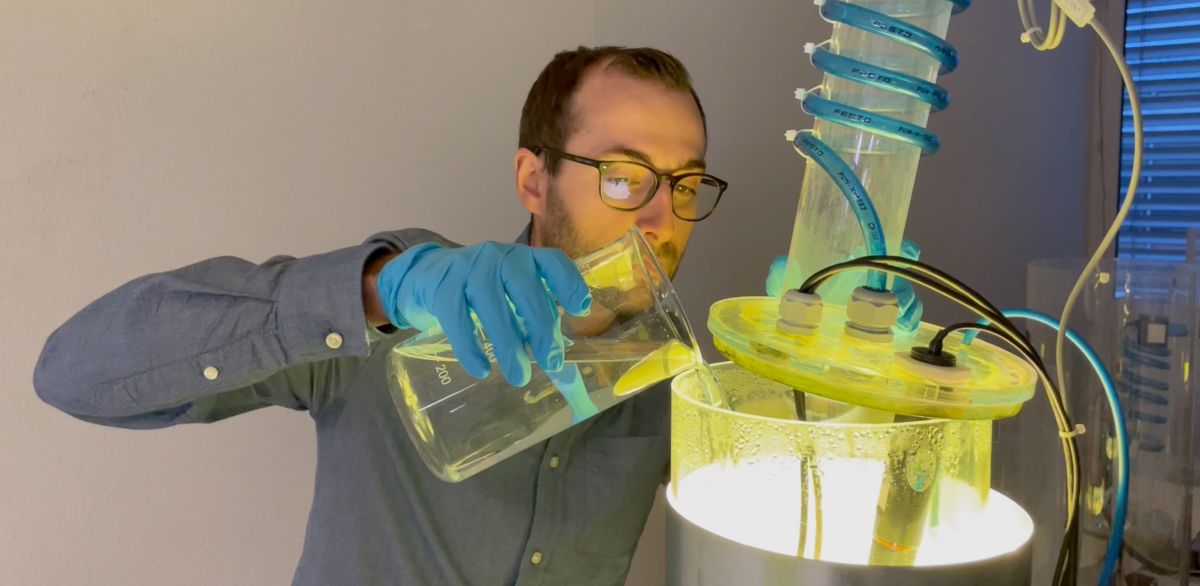
This year, the Gebert Rüf Stiftung has supported three projects through its First Ventures program. The new cohort comprises two cleantechs developing solutions to enable the planning and optimization of electric vehicles, and extracting CO2 using microalgae. The two joined Crownos, which was selected in February.
The First Ventures program by the Gebert Rüf Stiftung supports entrepreneurial journeys of Bachelor’s and Master’s students at Swiss Universities of Applied Sciences (UAS) that want to pursue their innovation projects after graduation. Each selected project received a contribution of a maximum of CHF 150,000 to enable them to establish their own spin-off. For the duration of the First Ventures project, the project managers are employed by the University of Applied Sciences and have full budget autonomy. The program also offers individually tailored business training and coaching sessions to help aspiring founders transform their ideas into a business.
This year, three startups were selected for the program:
eMobility+ | Emanuel Hadjikan, Bern UAS
The project "eMobility+" pursues the development of a software tool, which allows the full planning and optimization of electric vehicles and infrastructure for larger fleets within one application. The goal is to make the planning of fleet electrification more resource-efficient with intelligent software solutions. The software is characterized by a modular structure. This allows program functions to be tailored to a wide variety of customers and their needs.
The project comes at a time when the federal government is devising an energy strategy with the aim to replace almost combustion engines as a CO2-neutral alternative. The changeover to electric drives poses various challenges, especially for commercial transport companies, since battery drives also have disadvantages due to technical limitations despite many advantages.
Microalgae for Carbon Dioxide Removal by Arrhenius AG | Reto Tamburini, Luzern UAS
Using Negative Emission Technologies (NETs) on a global scale is necessary to combat climate change and reduce CO2 emissions. A possible solution to remove CO2 from the atmosphere is through the production and storage of biomass. Reto Tamburini and his team at Arrhenius AG have found that Microalgae produced in warm water is the most efficient way to produce biomass (picture above). Since the process requires a higher energy demand, using the generated biomass as a raw material to replace fossil raw materials contributes positively to the environment. Arrhenius is now pursuing these two approaches with the goal of developing and operating photobioreactor systems on a large scale, both to directly remove CO2 from the atmosphere and to reduce CO2 emissions through the production of biogenic substances. More information on the website of the Lucerne University of Applied Sciences (in German).
Crownos | Andreas Dobler, HKB Institute of Design Research
The two companies join Crownos, the first company selected this year. The startup is developing the first individual brokerage service for luxury and premium watches, bringing together watch brands, retailers and interested parties digitally. The service individualises the visitor experience by intelligently matching the timepiece and the customer, accompanying them in their search for watches that fit their personal ideas and requirements. In doing so, we are bucking the trend of ever-dwindling brand diversity. Further, Crownos offers small companies easy access to digital distribution channels in order to optimally retain existing customers and develop new target groups
(Ritah Ayebare Nyakato)
Picture: Reto Tamborini: Producing microalgae in warm water / Lucerne University of Applied Sciences























































Please login or sign up to comment.
Commenting guidelines